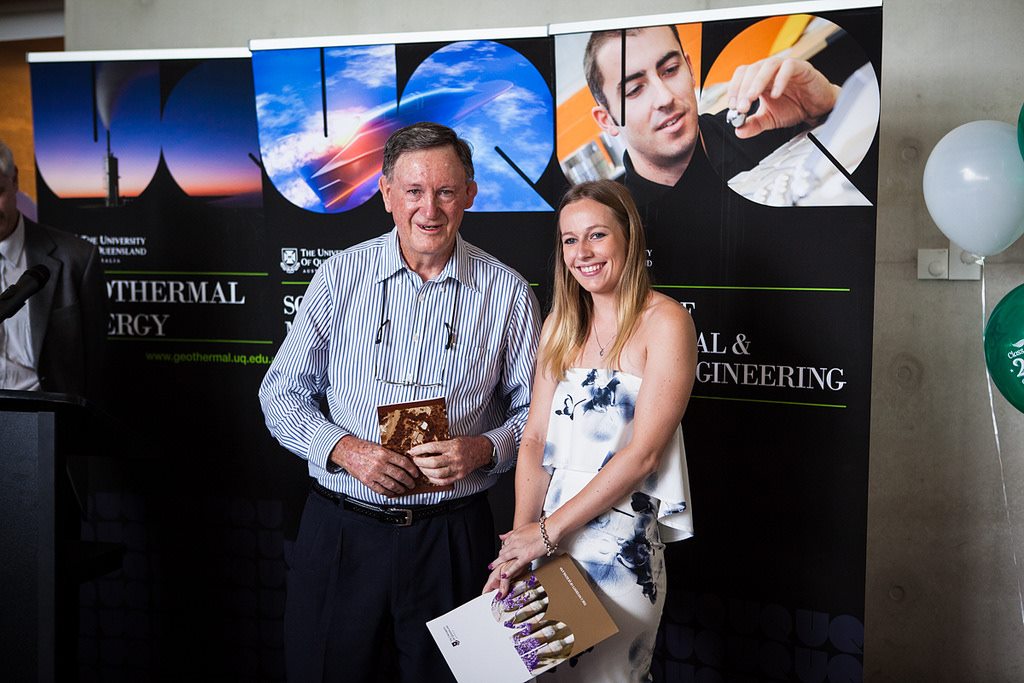A data science thesis by UQ Mining Engineering graduate, Kimberley Maher has won the Logan Prize for a underground metalliferous thesis for her project entitled: “A data science approach to identifying and quantifying causes of dilution at Cannington mine“.
Kimberley Maher receiving Logan Prize for best underground metalliferous thesis from prize sponsor Sam Logan (Copyright permission: UQ SOMMM)
The study identifies the causes of dilution at South32’s Cannington mine, a large open stoping operation in Queensland, Australia. Because Cannington already performs very well in terms of industry dilution benchmarks, opportunities for improvement are more difficult to identify. Based upon back analysis of nearly 150 case studies from the mines reconciliation database, it was possible to quantify the effect, interaction and significance levels for the following dilution factors: paste filling, faulting, cable bolt reinforcement and stope open duration. Quantifying the effect of faults on stability graph accuracy enabled a site specific adjustment to improve the predictive ability of the Cannington stability graph (unstable stope specificity improved from 63 % to 74 %).
PETRA Managing Director, Dr Penny Stewart supervised the project in her role as an Associate Professor at UQ’s Geotechnical Engineering Centre, and would like thank Cannington personnel for initiating and supporting the project. With the rapid growth of mine Big Data, we expect to see more data science undergraduate projects in the near future! PETRA is keen to support undergraduates to develop data science skills, with Dr Stewart available to supervise mining related thesis topics. Please contact us for more information.
Part of this work will be presented at MassMin2016 in Sydney, May 2016. Here is a link to the abstract for this paper:
MassMin2016 paper abstract by K. Maher, P. C. Stewart and S. Robotham

